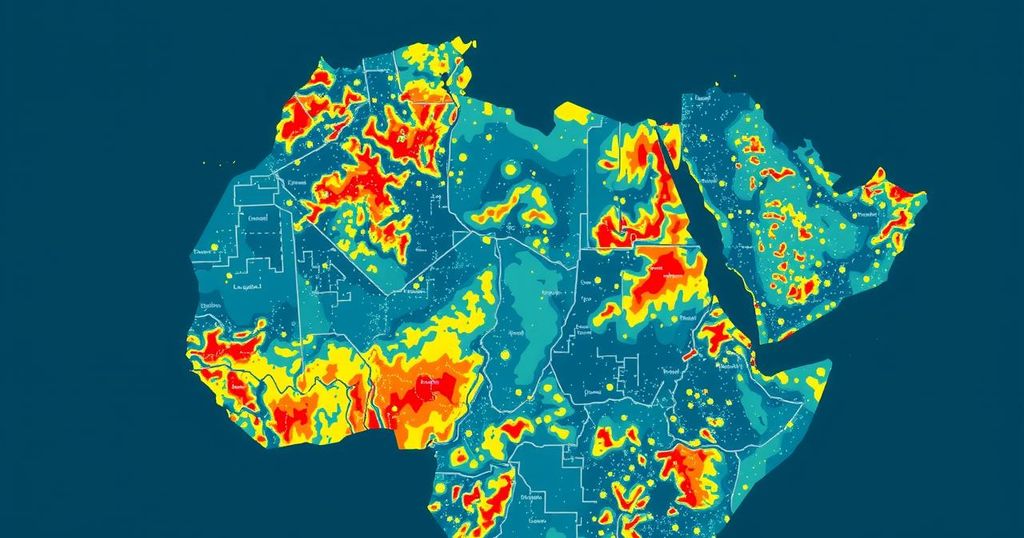Fathom Collaborates with Malaria Atlas Project to Address Flooding’s Impact on Malaria in Africa
The Malaria Atlas Project is working with Fathom to investigate the effects of flooding on malaria risk in Africa, especially as climate change alters flood patterns. Funded by the Bill & Melinda Gates Foundation, this project aims to evaluate how flooding affects healthcare logistics, mosquito breeding sites, and malaria control processes. The data provided by Fathom is essential for developing resilient strategies against malaria in flood-prone regions.
The Malaria Atlas Project is collaborating with Fathom, a global flood risk intelligence firm, to explore the relationship between flooding and malaria risk in Africa. With climate change intensifying flood events, this initiative aims to assess the implications for malaria control. Fathom is tasked with providing comprehensive flood risk data for the continent, covering current conditions and future projections up to 2100. This initiative is backed by the Bill & Melinda Gates Foundation and seeks to analyze how flooding affects medical service logistics, malaria intervention strategies, and mosquito habitats. Key findings will stem from an extensive analytical phase utilizing Fathom’s award-winning data. Professor Peter Gething, who co-leads the Malaria Atlas Project, emphasized the crucial role of Fathom’s data in understanding malaria transmission dynamics in flood-prone regions. Dr. Andrew Smith, the COO of Fathom, highlighted the importance of their insights in shaping effective responses to the dual crises of flooding and malaria, aiming to ensure community safety and informed decision-making moving forward. This collaboration seeks strategic, long-term solutions to address the challenges posed by climate change and its impact on public health in Africa.
The intersection of climate change and public health, especially regarding vector-borne diseases like malaria, represents a critical area of concern. Flooding, which is anticipated to increase due to changing climate conditions, directly influences mosquito breeding, healthcare access, and vector control measures. The Malaria Atlas Project aims to utilize robust flood risk data to bolster efforts for malaria control in vulnerable regions across Africa, supporting strategies that can withstand the evolving risks posed by floods.
In conclusion, the partnership between the Malaria Atlas Project and Fathom plays a pivotal role in addressing malaria risks exacerbated by climate change-induced flooding. Through the provision of comprehensive flood risk data, the initiative aims to inform thoughtful, long-term infrastructure and health strategies, ultimately working toward a significant reduction in malaria’s impact on affected communities throughout Africa.
Original Source: www.africa.com




Post Comment